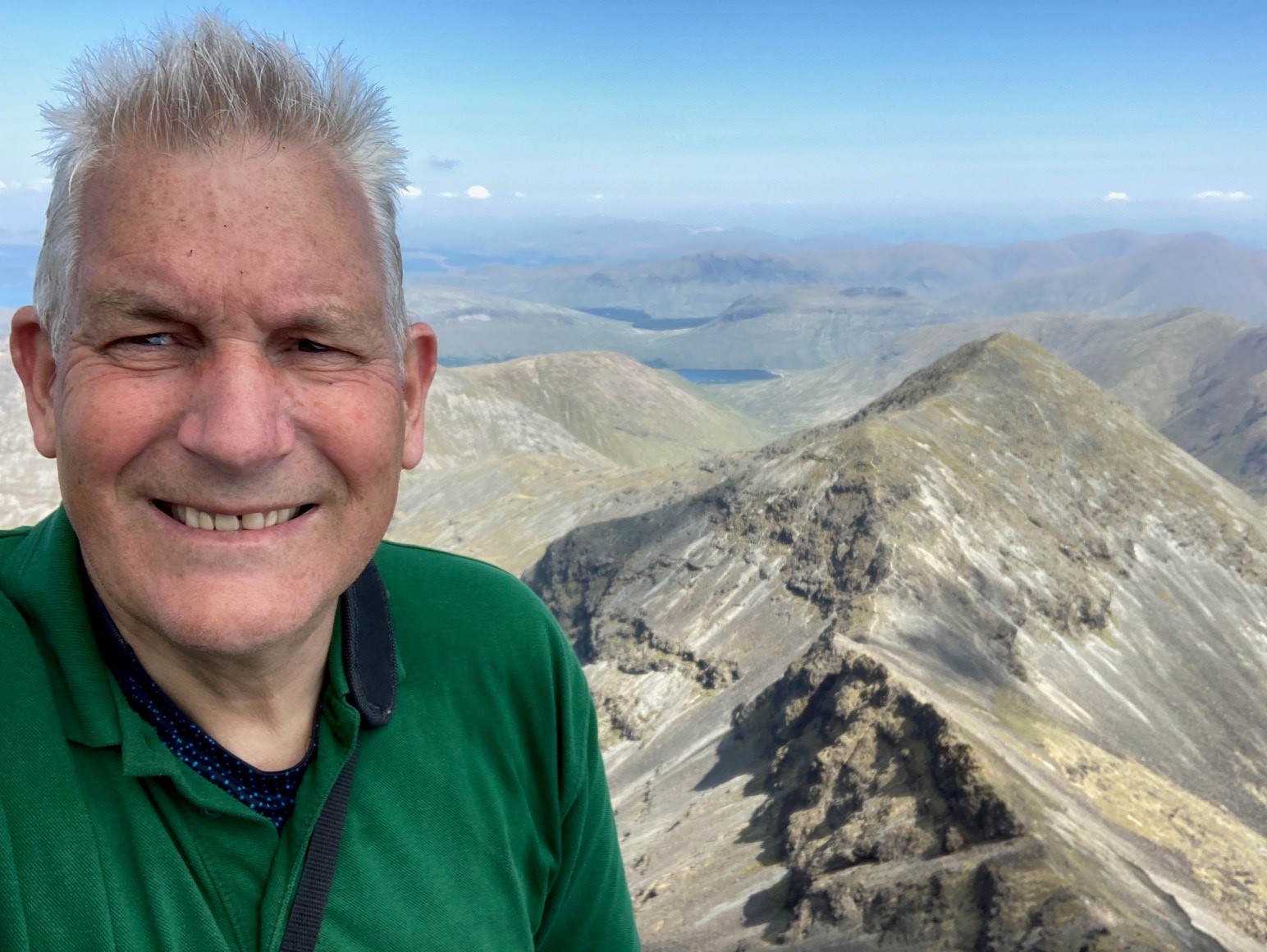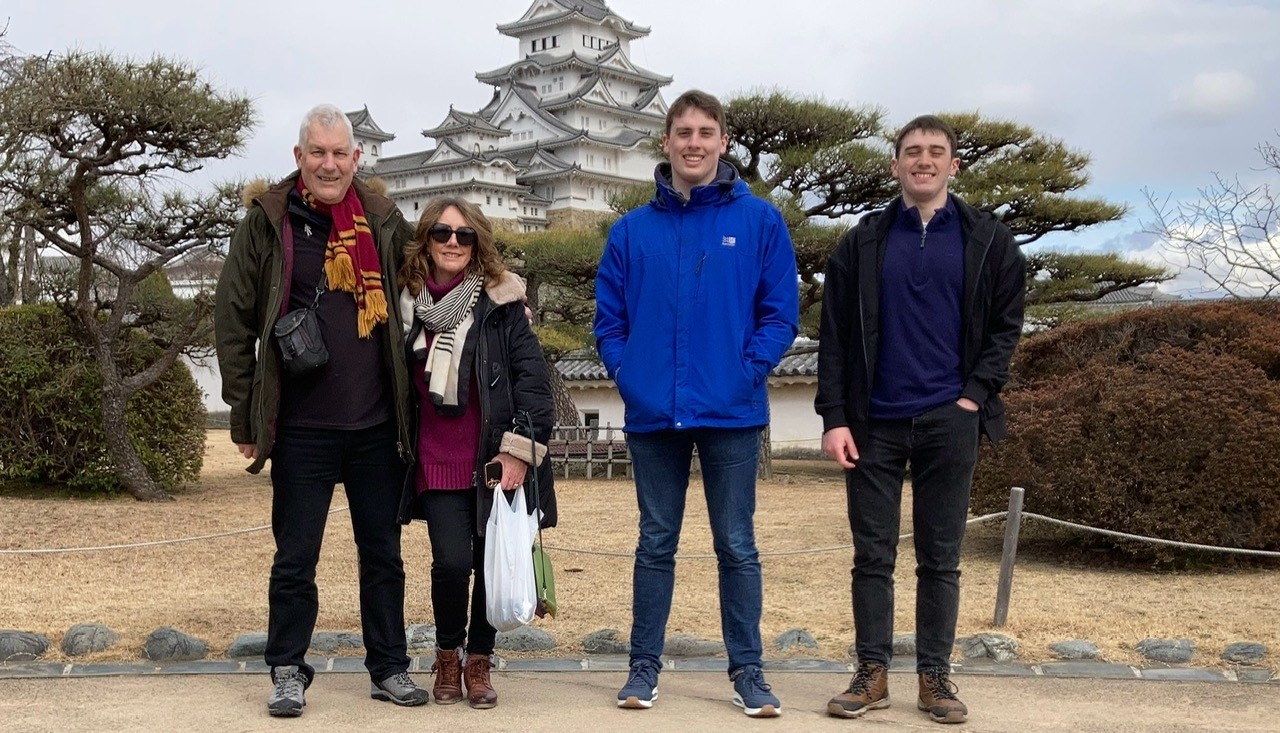Ian's Story
Ian, 63, was diagnosed with locally advanced prostate cancer in June 2023. He had several treatments, including chemotherapy and radiotherapy. Here, he kindly shares his experience.
My diagnosis
Even before I was diagnosed with prostate cancer, I suspected there was something wrong with my prostate. About a year before my diagnosis, I needed to get up several times during the night to go and have a pee. At first I just got on with it, but I knew it wasn’t normal.

It was on my mind a lot and when my birthday came around, I just thought “This is silly. I have to do something about this”. I spoke to the doctor and he asked me to go in for a PSA blood test. Because I had symptoms, he also wanted me to have a digital rectal examination (DRE). I was a bit worried that the prodding and poking was not going to be a pleasant experience. But actually, the finger up the bum (DRE) is nothing to be worried about at all.
The DRE showed my prostate was larger than it should be. And then the PSA results came back high at 9.1, so I was referred to the local hospital for further tests.
The magnetic resonance scan (MRI) showed that there was something in my prostate, so I had a biopsy. This confirmed I had locally advanced prostate cancer that had grown out of the prostate a bit and into my lymph nodes.
I was mentally prepared for the worst news and was very matter of fact about it. I coped by making sure that everyone I'm surrounded by knew what was happening. I joined Prostate Cancer UK’s Online Community and wrote up my notes as a blog on my profile. Then I just copied and pasted that to my family – that way you don't have to explain what's going on over and over again. Everybody can read about it and knows what’s happening.
My treatments
My doctor talked me through the treatment options I could have. I remember asking about surgery but because my cancer had come out of my prostate, it wasn’t an option for me. I had hormone treatment straight away to stop the cancer from growing any more, and I need to stay on it for three years in total.
I also had six chemotherapy sessions over four months. You hear about it all the time and it's a scary thing. But when it boiled down to the actual chemotherapy sessions, there wasn't anything wrong with them. I used to just sit there with the chemotherapy drip in my arm and read a book or listen to music. Before I knew it, the session was over with. I chose to have a cold cap during my chemotherapy sessions, and this stopped me from losing the hair on my head.
After my first chemotherapy session, I felt so good that I arranged to go on a weekend bike ride with my mate. But about two days later, everything in my body crashed – no energy whatsoever. The only thing I could do was go to bed or sit watching football on the television. By the end of the weekend, I started recovering. I gradually got my energy levels back over the next two weeks. By the time the next chemotherapy session came along, I was almost back to normal. That was the same pattern for every chemotherapy session, except the symptoms got worse each time. I found it helped to know the pattern and not fight the fatigue – just go with it and give myself time to recover. It also helped to give myself something to look forward to, even just to go out for a pint or do something a bit special.
As soon as chemotherapy was over, I had to choose whether to have external beam radiotherapy on its own, or High dose-rate brachytherapy followed by external beam radiotherapy. I ended up reading about them as much as possible, and going on the Online Community to look at other people's experiences of the treatments. That helped me decide to have both treatments.
I woke up from my brachytherapy procedure in the recovery ward and the nurse told me I needed to drink loads of water to flush out my system. So I drank water by the jugful, which meant that during the night I was quickly filling up the catheter bag up on the end of my bed. I had to phone the nurses every two minutes to come empty it!
A couple of weeks after that I had my external beam radiotherapy. I found it more stressful than the brachytherapy as I had to have twenty sessions over four weeks. The actual treatment itself is easy and is over within about a minute. You just lie there while this machine zaps you. But it's the process leading up to it each day that is hard. At the hospital I would insert an enema (a tablet that goes into your back passage), wait for up to 45 minutes then empty my bowels. Then I’d drink a bottle of water in 15 minutes and wait with a full bladder for half hour before getting zapped. If there is a delay at any point in this process it could cause problems.
My side effects
My main side effect after my radiotherapy was bowel problems. I had diarrhoea and constantly felt like I needed to the loo. I’d also sometimes feel bloated but was worried to pass wind in case something else came out as well! I took some diarrhoea relief medicine, which helped. But there was a time where I wasn't keen on leaving the house in case I was caught short. Mentally, it helped to be able to laugh about it – after all, it is a basic bodily function and everyone will experience something similar at some point in their lives. My bowel problems gradually got better after I finished my sessions.

Where I am now and what's next
I like to keep active and be outdoors, so I do a lot of walking with the dogs. I don’t have the physical strength to do mountain biking anymore as the hormone treatment has made my muscles weaker.
Because of this, I've got myself an electric bike. I'm not getting the same exercise, but at least I'm getting out and about, which is good for my mental wellbeing.
Being diagnosed with cancer, you have a totally different perspective on things. I try to take life as it comes. My son is doing a year of study in Tokyo, so we decided to go visit him last February. That's just something we wouldn’t have done before. But now I think, if I’m not going to do these things now, when am I going to do them?
Story added: September 2025

